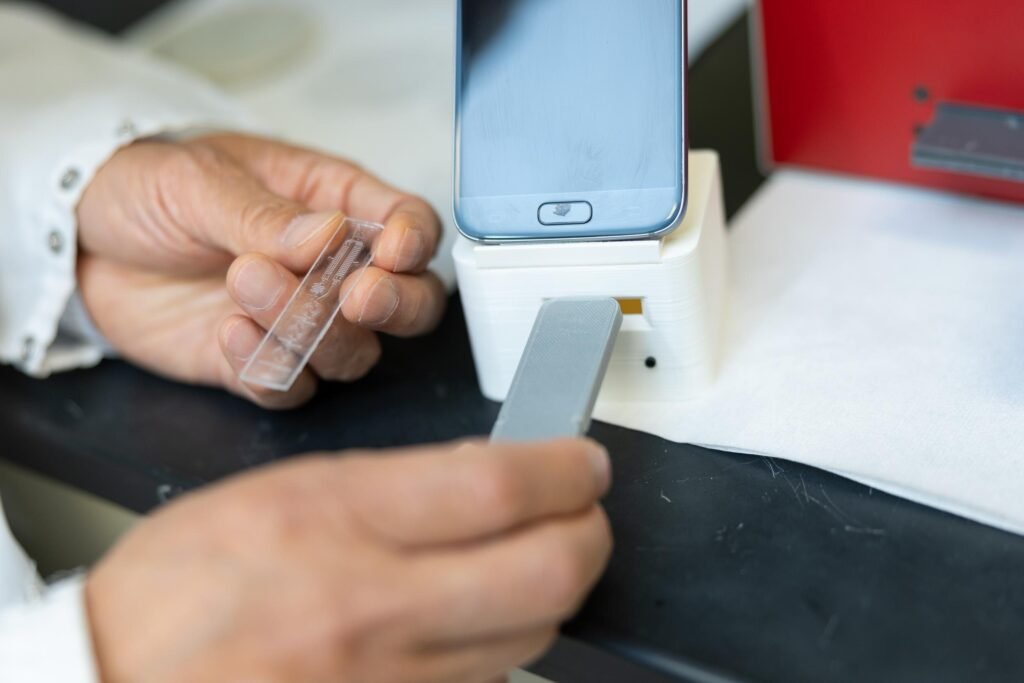University of Cincinnati engineers have developed a groundbreaking device aimed at aiding doctors in diagnosing depression and anxiety. This innovative “lab-on-a-chip” device is designed to measure cortisol levels, the stress hormone, from a patient’s saliva. Elevated stress hormone levels can serve as valuable diagnostic information, even when patients do not exhibit symptoms of anxiety, stress, or depression during a standard mental health assessment.
Mental health disorders impact over 400 million people worldwide, with stress-related disorders such as anxiety and depression ranking among the leading causes of disability globally. Prolonged elevation of cortisol levels has been linked to various mental health conditions, including depression and anxiety.
The lab-on-a-chip system created by UC researchers enables the monitoring of a patient’s cortisol levels through a disposable collection device placed in the mouth. This device is then inserted into a reader, which can transmit results within minutes to a portable analyzer and smartphone for quick and convenient access.
Published in the journal Biomedical Microdevices, the study highlights the potential of point-of-care testing, allowing patients to conduct tests at home or in a clinic without the need for invasive procedures. This approach not only facilitates timely interventions by healthcare professionals but also enhances the diagnostic process for stress disorders.
The device developed by UC engineers has broader applications beyond mental health diagnostics. For example, the team has explored the use of the device in measuring troponin, a protein released into the bloodstream following heart damage, such as during a heart attack. By monitoring troponin levels, clinicians can assess the extent of heart damage and provide immediate care to patients in need.
Additionally, the researchers have unveiled a new point-of-care testing platform for COVID-19, underscoring the versatility and potential impact of their innovative technology in addressing a wide range of health issues.
The study also emphasizes the role of objective biomarker measurements in supplementing traditional mental health screenings, providing clinicians with valuable insights into a patient’s stress levels. Unlike subjective mental health questionnaires that rely on patient self-reporting, cortisol and DHEA tests offer an objective assessment, offering a more comprehensive understanding of a patient’s mental health status.
The next phase of the research involves collaborating with psychiatrists and conducting clinical trials to validate the efficacy of the platform in real-world settings. By combining traditional psychometric evaluations with physiological biomarker measurements, UC researchers aim to usher in a new era of diagnostics for stress-related disorders, offering personalized and effective care for patients in need.
Overall, the innovative lab-on-a-chip technology developed by UC engineers holds immense promise in revolutionizing mental health diagnostics and providing timely interventions for individuals grappling with anxiety, stress, and depression. With its potential to enable convenient at-home testing and rapid results delivery, this device represents a significant step forward in enhancing public health outcomes and improving patient care.


